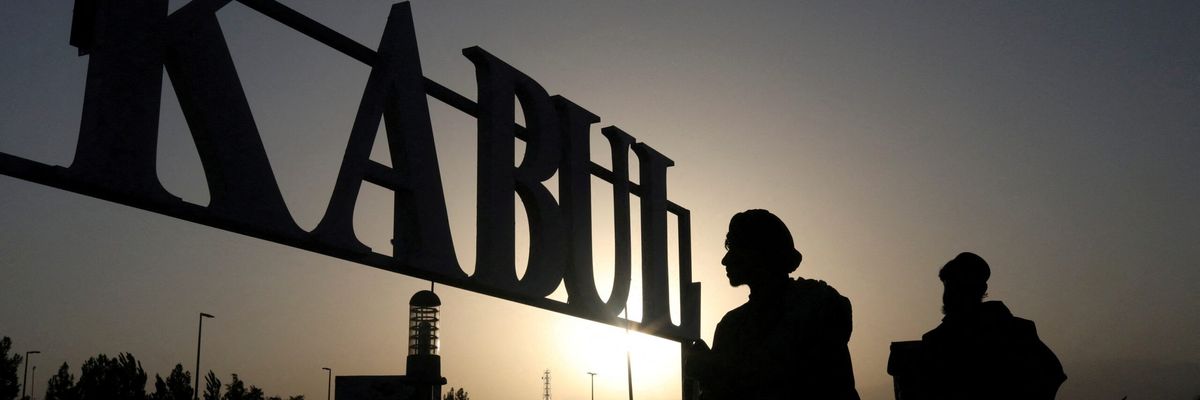Two meetings occurred this week to address the Taliban’s relations with the world. The first occurred in Tashkent, Uzbekistan between international envoys (including the U.S.) to Afghanistan and various Taliban officials. The second was a meeting between a delegation headed by a leading Islamic scholar from Pakistan and the Tehrik-i-Taliban Pakistan, which is sometimes popularly referred to as the ‘Pakistani Taliban.’
The meetings in Tashkent were supposed to be followed by planned, direct talks Wednesday between the Taliban and U.S. delegates "to address the economic challenges faced by the Afghan people,” according to a U.S. statement reported by Voice of America.
The first meeting focused on the need for Afghan girls to be permitted to attend secondary school, other human rights abuses, Afghanistan’s foreign exchange reserves which remain frozen in the United States and Europe, and the overall economic development of the country. The United States is the largest provider of aid to Afghanistan which has continued throughout Taliban rule with over $775 million in aid sent to the people of Afghanistan since last summer.
But an aid-dependent Afghanistan is not sustainable indefinitely and therefore steps must be taken to normalize the economy. On several occasions U.S. special representative for Afghanistan Thomas West has expressed an ultimate desire to return Afghanistan’s frozen foreign exchange reserves to the country’s central bank and rejected rumors that the funds would be used for aid. The U.S. Treasury’s Office of Foreign Assets Control (OFAC) has also issued seven general licenses which act as exemptions to U.S. sanctions on the Taliban. However, the chilling effect of these sanctions remains. The Taliban have also failed to take basic actions that would reassure the international community such as providing clear policies against terrorist financing and money laundering or removing sanctioned individuals from leadership positions at the central bank.
It is also necessary to understand that Afghanistan’s economy would remain in dire straits even if sanctions were lifted tomorrow and the frozen foreign exchange reserves returned in full. This is because Afghanistan is a landlocked country with a majority rural population in which dried fruit, coal, and rugs make up the majority of exports. An artificial economy ballooned for two decades as a result of the U.S.-led war in Afghanistan which fostered war-related industries such as bulk fuel transport and led to a parallel aid economy. Afghanistan’s future growth is likely to remain slow at best as it now faces the constraints of its geography, infrastructure, and Taliban governance.
Security also remains a significant concern for the United States and region. ISKP — an offshoot of the Islamic State —continues to target Afghanistan’s minorities, particularly the Hazara community. It also carries out targeted attacks on Taliban checkpoints. Across the border in Pakistan the TTP carried out a renewed offensive over the last spring and is currently in negotiations with the Pakistani government. The Afghan Taliban is mediating talks between the Pakistani military and the TTP but the Taliban’s refusal to otherwise rein in their TTP partners is a point of frustration in Islamabad. Pakistan’s most recent negotiating strategy is to send a delegation led by the prominent Karachi-based Deobandi cleric Taqi Usmani to speak with the TTP.
Washington and Afghanistan’s neighbors continue the difficult but necessary process of dialogue with an increasingly stubborn Taliban, but actual progress on the issues remains slow.
















